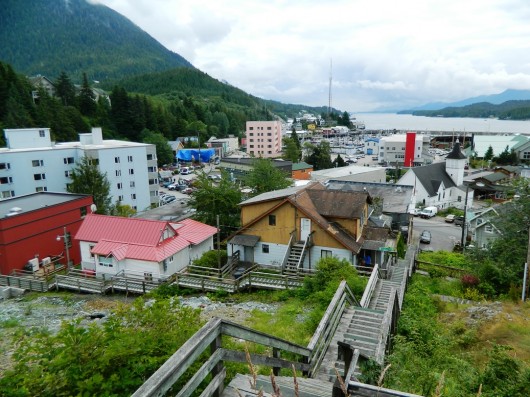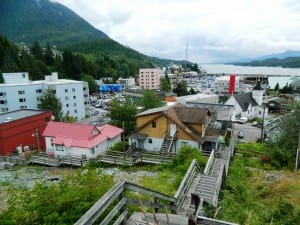The Ketchikan City Council voted down two rate increases Thursday before adopting the 2017 City of Ketchikan and Ketchikan Public Utilities budgets.
During consideration of the city budget, the Council voted on a proposed 6-percent residential wastewater rate increase. The motion failed 4-2 with Council Members Dick Coose and Bob Sivertsen voting yes. Council Member Mark Flora was absent.
The Council also voted to remove $20,000 from the Port budget for small off-street vehicles that Port employees could use to travel between berths. But, the Council opted to keep $15,000 in the Port budget to pay musicians to provide live music at the Berth 3 shelter.
Coose had proposed cutting the expense for music, which he didn’t think would be much of an attraction for tourists.
“I don’t think that’s good use of our money,” he said. “If we wanted to try it, my first  suggestion is to set up some guidelines and see if there are some bands or people who would like to do that under that shelter and see how it works out for a year, but don’t pay nobody to do it.”
suggestion is to set up some guidelines and see if there are some bands or people who would like to do that under that shelter and see how it works out for a year, but don’t pay nobody to do it.”
Council Member Dave Kiffer – who is a local musician – says he likes the idea of music on the dock, and paying for it. Council Member Janalee Gage agreed, and said it would give cruise ship passengers some entertainment while they wait in line to get back on their ships.
“And I agree with Kiffer,” she said. “You gotta pay something. Because, to think that an artist’s time is not worth two cents to rub together is kinda not right.”
The motion to cut the expense for music failed 1-5 with Coose voting yes.
The overall city budget, with a spending plan of about $64 million, passed 5-1 with Coose voting no. Coose also was the only “no” vote on the approximately $45 million KPU budget. That passed 5-1 after the Council opted to not raise residential water rates.
The Council directed city management to instead bring back a plan to increase rates for industrial water users, such as fish processors. A water rate study has shown that residential ratepayers heavily subsidize industrial users.
City Manager Karl Amylon told the Council he would have something for the Council to consider by the second meeting in January.







